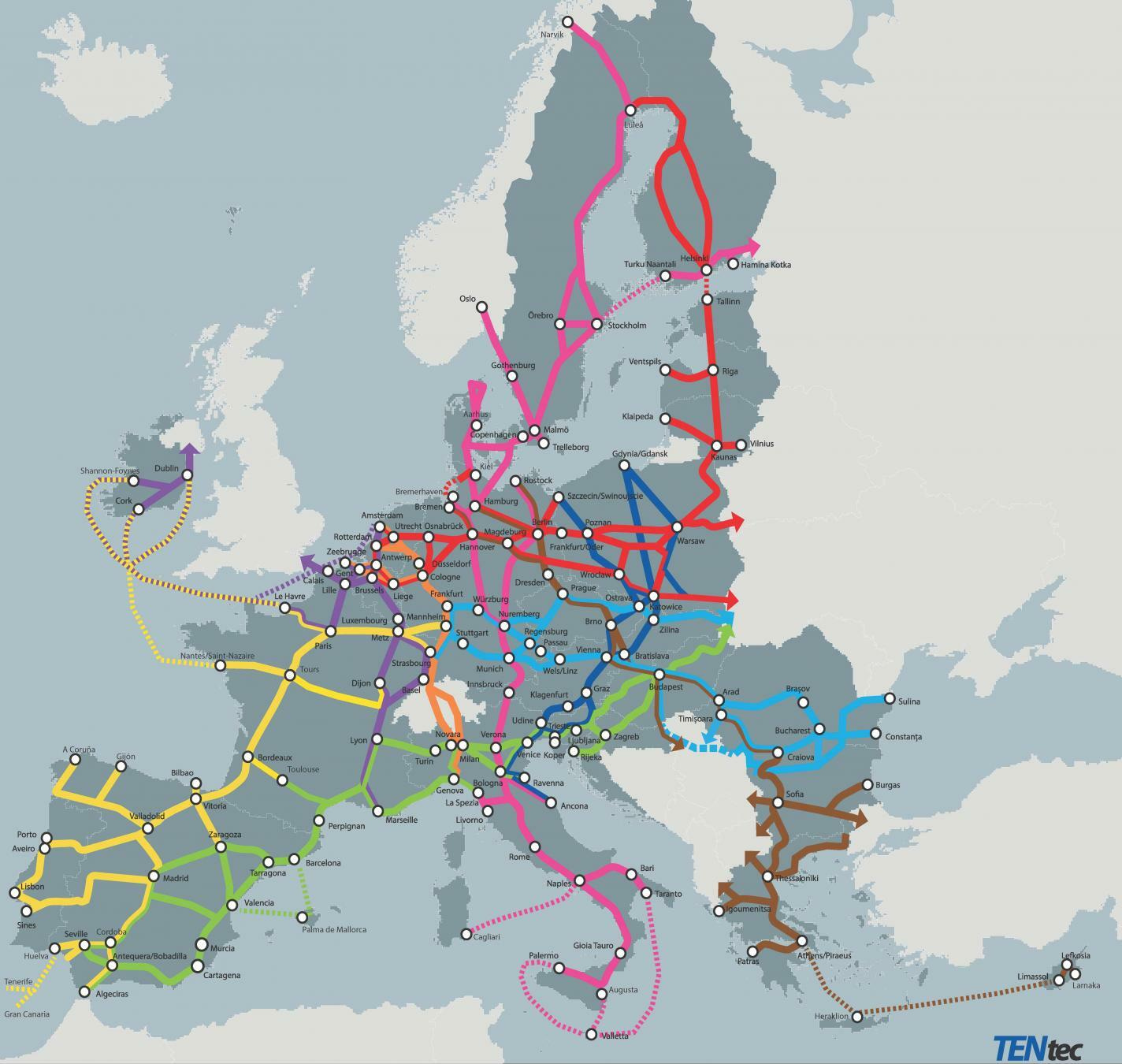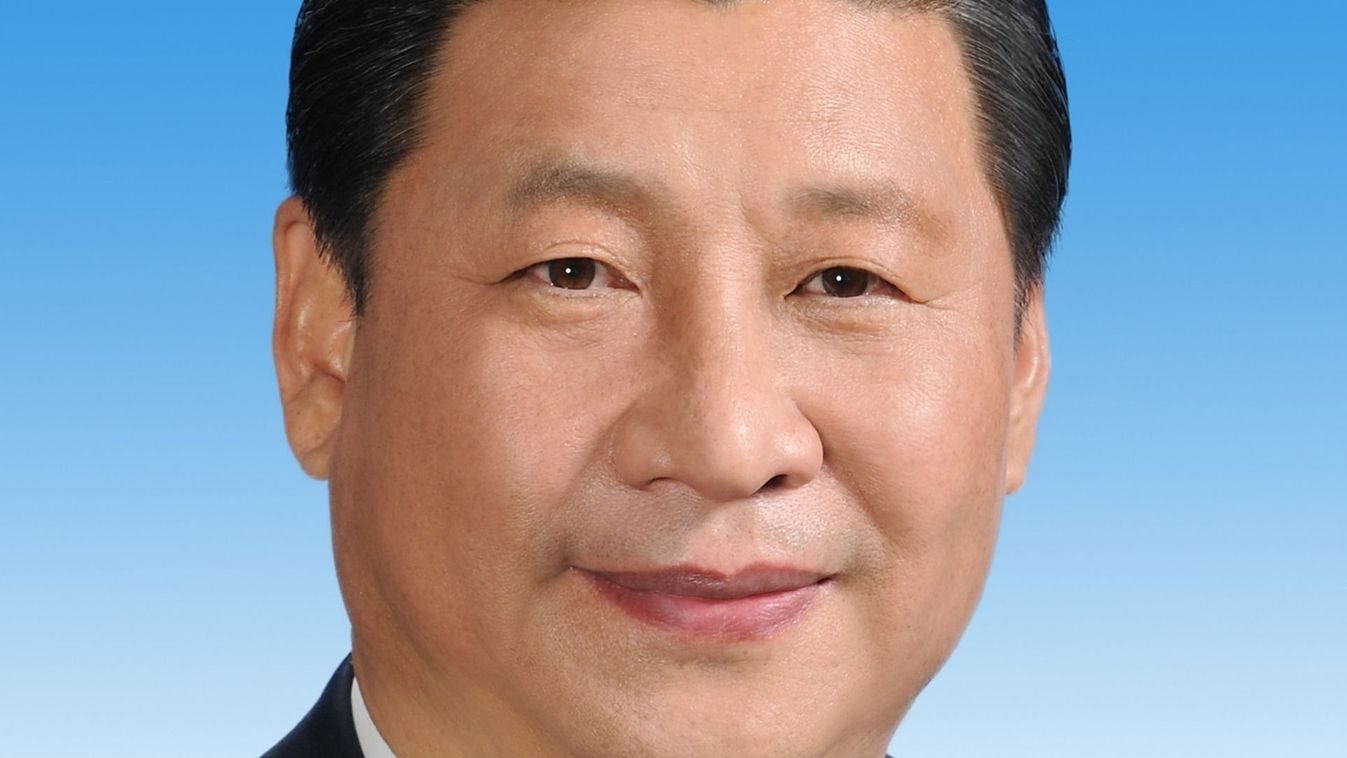Two weeks ago, on Saturday, I had dinner at Spicy Fish, an excellent Chinese restaurant in Budapest. It's different from your average Chinese fast food place, specializing in Sichuan and Guangdong cuisine. This attracts many people from Budapest's Chinese community, so it's not uncommon to see Chinese people dining there.
However, the eight people dining next to me stood out. They displayed confident moves and masculine camaraderie. One of them always spoke first. They sat so they could see the doors and had an authoritative air about them…cops. As a lawyer, I can spot blue when I see it, even if they are plain-clothes Chinese cops having an informal dinner, celebrating something.
They were celebrating the successful operation that protected Premier Xi Jinping's visit to Budapest.
The visit sent waves around the world. Senator Mitch McConnell spoke about our humble country in the midst of the presidential campaign. But how much influence can China exert in Hungary?
Mr. Xi visited France, Serbia, and Hungary during his European trip. His visit to France was to find common ground with the EU. However, he was not welcomed everywhere in Europe. Shortly before his arrival, an aide to Maximilian Krah, MEP and the lead candidate of the far-right AfD party, was arrested in Dresden, Germany. Jian G, 43, is suspected to be a Chinese spy. The timing of the arrest looks like a message to Mr. Xi.
The EU and China have some shared interests, but China's imperial ambitions and Xi's expansive foreign policy threaten the business of leading European companies. President Macron tried to find a way around that and reminded Xi that China's Belt and Road expansion must stop at the EU's borders.
From partners to the fanclub
In a blatant response to this, Xi visited Serbia and Hungary. Macron, invoking the complete repertoire of French grandeur, received him as one sovereign meeting another, including a trip to a countryside castle to emphasize that this encounter is between equals. The sound of Mr. Xi’s gritting teeth could be heard from lightyears away.
Diplomatic formalities were observed in Serbia and Hungary, but they welcomed the sublime emperor. His communist majesty made a point of visiting Serbia first, emphasizing that allegiance to Chinese economic interests takes precedence over EU membership.
Chinese are known to be fond of diplomatic finesse. Leading French, Serbian, and Hungarian newspapers published an article by Mr. Xi. He praised the friendship, expressed hope of strengthening cooperation, and used other platitudes. One must look for the subtle signs in these.
Subtle but firm: the Chinese are not happy
One of the subtle hints in Xi’s article pertains to the Belgrade-Budapest railroad project. This is a clear example of why Xi’s visit to Hungary left a bitter taste despite all the sweet words.
The distance between Belgrade and Budapest is 300 kilometers, and there is already a railway connection. Hungary and Serbia have pledged to build a new and improved railway line with the help of China. The sole use of this new link is to improve access to European markets from the Chinese-operated Port of Piraeus in Greece. In an article in "Magyar Nemzet" (The Hungarian Nation, the government's newspaper), Mr. Xi expressed his intentions to "facilitate" this project. However, he did not mention this in his Serbian press article.
Even mentioning this displays apparent irritation on the Chinese side. Hungary is caught between a rock and a hard place.
A not so potent leader
Viktor Orbán made a mistake by positioning himself as Hungary's omnipotent leader. This attracted Chinese and other Asian investors because compliance with EU rules is expensive. An all-powerful leader bending those rules while also offering lucrative tax breaks and even direct financial support sounds very appealing.
But Orbán is not all-powerful. The increasing Chinese economic influence annoys our German friends and American allies. The US Embassy's messages are so forceful that it's widely known across Budapest that the US Government is irritated. One of the lesser-discussed reasons for the EU's sanctions against Hungary is Hungary's favoritism toward Chinese companies, which involves bending EU-standard rules.
Bad management and political miscalculation
There are more than just political limits to his power. The labor markets of the wealthier Western European countries depleted the Hungarian workforce. Almost every Chinese project is forced to import Asian workers just to build the plants.
The flagship project, the Budapest-Belgrade Railway, has stalled on the Hungarian side due to slow certification processes and work progress. Meanwhile, the Serbian side of the project seems to be progressing much better.
Interestingly, the EU is providing financial support for the project's next phase, the Belgrade-Nis line (Nis is about halfway between Belgrade and Greece). The Hungarian section of the line is part of the EU's TEN-T transport network, while the Serbian (and other ex-Yugoslavian) parts are extensions reaching the EU at the Greek border.

The EU aims to keep Chinese companies and political influences out of the backbone transportation network, especially in EU member countries. Although they may tacitly tolerate it in Serbia and Greece, curbing Chinese expansion in the Balkan peninsula is a key EU objective.
Add to the woes of Viktor Orbán; he is in desperate need of money.
Billions of euros worth of EU development funds are frozen because of the EU’s rule of law control mechanism. Orbán’s rule is based on channeling these to loyal supporters. The Hungarian economy slowed along with other countries in the area, but while our neighbors are bouncing back, Hungarian consumption and industrial output remain low. After a brief descent, inflation has started to grow, so we are in the stagflation trap again. But that’s not all.
The first payments for the Premium State Bonds (Prémium Magyar Állampapír, PMÁP) are due this year. PMÁP offers a premium over the official inflation figure. The official inflation figure for 2023 was 17.6%, so PMÁP pays 17.85-19.6% depending on different series of bonds. The official 17.6% inflation data is believed (and certainly felt) to be much higher. Maturity is still a few years away, but interest payments already burden the budget. They issued these bonds under the assumption that by the time the first payments are due, Hungary will have access to cheaper funding and EU development funds. However, none of those seem to materialize.
So, The Sublime Emperor Xi met Viktor Orbán, who:
Couldn't report success on a major Chinese investment project
Isolated within the EU
His party has its first real challenger in 15 years in the upcoming EU and local elections
The EU keeps him on a short leash and threatens him both financially and politically
The only thing that keeps the US Government from using its entire repertoire against him is Hungary’s EU membership
This does not exactly show how the all-powerful leader Orbán presented himself to the Chinese. And what did he ask for in the closed-door negotiations with Xi? Money—loans, investments, anything. According to press releases, Orbán promised everything. But Xi? He promised nothing.
Orbán likes to point out in the EU that he is the oldest-serving government leader since Germany’s Angela Merkel retired, and he likes to hint that while EU leaders come and go, he will still be there.
The tables have turned in these negotiations. I think Mr. Xi believed that Orbán's promises sounded good, but he would wait and see what his successor would say. The Chinese are eager to invest in building influence, but they won't fund struggling dictators for free.







It seems that the Chinese are stuck with the railway traffic control system. They have their own standard, which is good inside China, and everybody accepts it in Africa. However, in the EU, each country has its own control system, and it is not completely unified at EU level yet. For the Chinese side, it is not rentable to develop something for just a 300 km railway line that can not be used anywhere else. Maybe Mr. Orban has promised that applying the Chinese system will be fine, but it is actually not.
Remek olvasmány volt. Köszi